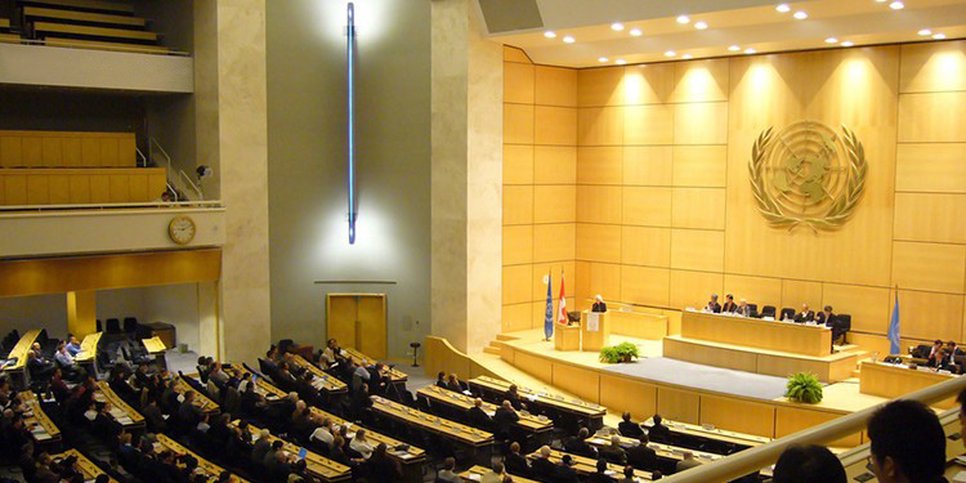Photo source: K.Jakubowska / Shutterstock.com
Photo source: K.Jakubowska / Shutterstock.com
Third Decision of UN Working Group on Arbitrary Detention Regarding Russian Jehovah's Witnesses
Perm Territory, Smolensk Region, Penza Region, Volgograd Region, Bryansk Region, Kemerovo Region, SwitzerlandOn May 6, 2020, the UN Human Rights Council Working Group on Arbitrary Detention prepared a decision concerning 18 believers in Russia. The Group considers the cases brought against them to be unlawful, urges authorities to immediately release those arrested, in connection with the COVID-19 pandemic, and to “take appropriate measures against those responsible for the violation of their rights.”
The authoritative UN body considered the complaint of eighteen Russian believers from Volgograd, Kemerovo, Smolensk, Penza, Perm and Novozybkov. Ten of them were arrested and held in pre-trial detention: Andrey Magliv, Igor Egozaryan, Ruslan Korolev, Vladimir Kulyasov, Valery Rogozin, Valery Shalev, Tatyana Shamsheva, Olga Silaeva, Alexander Solovyov and Denis Timoshin.
According to the 15-page decision No. 10/2020, there are no grounds for criminal prosecution in any of the cases considered and all of them should be closed immediately. The cases were initiated "only because [the accused] peacefully professed their religious beliefs, including carrying religious texts and Bibles, gathered together for worship services with fellow believers" (paragraph 67).
Paragraph 71 of the document states: "All 18 people ... were accused of various forms of "extremist activity". However, in the view of the Working Group, none of the activities described could be interpreted as such. In addition, the Working Group has not been submitted, and the Working Group itself is unable to establish, any reasons that could justify the restriction of the rights of these 18 persons under article 18 of the [International] Covenant [on Civil and Political Rights]. The Working Group considers that all the activities in which they participated constituted a peaceful way of exercising the right to freedom of religion under article 18 of the Covenant. Such activity was the sole basis for the detention of all 18 persons and their proceedings in the courts."
Paragraph 80 emphasizes that "the actions of these 18 persons were of a peaceful nature, and there is no evidence that any of them, or indeed any of Jehovah's Witnesses in Russia, ever resorted to violence or called on others to violence."
The decision reiterates that there is a "systemic and institutionalized persecution of Jehovah's Witnesses" in Russia (para. 78). The same wording was expressed in the decision of October 1, 2019, concerning Vladimir Alushkin from Penza, and in the decision of May 3, 2019 regarding Dmitry Mikhailov from Shuya (Ivanovo region). Thus, this is the third opinion of the UN Working Group on Arbitrary Detention against Russian Jehovah's Witnesses. In all cases, UN officials rejected Jehovah's Witnesses' association with extremism.
The Working Group also calls for the release from detention of those held in pre-trial detention centres, as there is a high risk of contracting COVID-19 with limited medical care (para. 84).
In paragraph 85, the Working Group calls for "a full and independent investigation into the circumstances of the arbitrary deprivation of liberty" of believers and "to take appropriate measures against those responsible."
The UN Working Group on Arbitrary Detention is a body designed to investigate cases of detention that are inconsistent with international standards set forth in the Universal Declaration of Human Rights and other international instruments. The Working Group has the right to receive information from the authorities and non-governmental organizations and to meet with detainees and their families in order to establish the facts. The Working Group submits its conclusions and recommendations to governments, as well as to the UN Human Rights Council. Although the decisions of the Working Group are not binding on States, they can help to soften the position of the authorities in the face of wide international publicity.
According to the legal position of the Constitutional Court of the Russian Federation, expressed in the ruling of 09.06.2015 No. 1276-O, the Russian Federation, as a state governed by the rule of law, cannot ignore the decision of the Working Group on Arbitrary Detention, which contains conclusions on arbitrary detention and criminal prosecution of citizens, without avoiding legal consequences.
